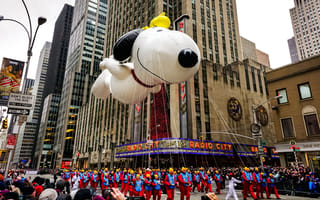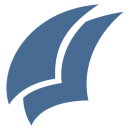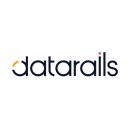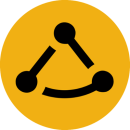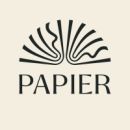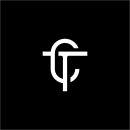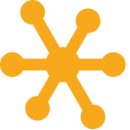It’s November in New York City. As the air chills from the incoming frost and the last of the orange leaves cling to their branches and delay their eventual departure, festive lights and Christmas trees emerge from a year’s respite. The buzzing of visiting crowds are punctuated with the sultry tones of Carey, Sinatra and Bublé as shoppers mill in and out of decorated stores.
In a week’s time, the city’s famous Macy’s Thanksgiving Day Parade will send off the month the only way the Big Apple knows how: with fanfare and extravagance. Meanwhile, preparations are underway for the three-hour televised celebration — floats to move, musical acts to rehearse and logistics to plan.
Elsewhere, New York City’s tech companies also have big acts and logistics to plan — and are preparing with high hopes for the season ahead. Though winter typically signals a slowdown in the industry, some companies are maintaining momentum through the year’s end with spotlights on their culture, benefits and newsworthy events.
For a holiday’s greeting, Built In NYC has prepared a parade of its own: A look at some of New York City’s dazzling tech companies and their reasons to celebrate the festive season.

What it does: Warner Bros. Discovery is an entertainment and global media company with a host of properties across TV, films, gaming, sports and more, including household brands such as HBO, CNN and Discovery Channel. A recently merged conglomerate consisting of WarnerMedia and Discovery, the new company is bringing together a diverse array of content to its distributed platforms.
The perks
- ERGs and committees such as Discovery Women’s Network and Parents at Discovery
- Annual Impact Day for volunteering, with $25 for new hires to donate
- Nonprofit partnerships such as Oceana, Project CAT and Turn Up Fight Hunger
- Flexible work schedule
- Generous parental leave and adoption assistance
People first: Though WBD is a large enterprise company, the culture still embraces a people-first environment. Not only is there a diversity slate required for leadership roles, but the company encourages a strong foundation of support and empowerment, as reflected in the mentorship style of Melanie Lantin, VP of product design and user research for home brand Magnolia. “I make sure I’m available to all my team members and know that I can offer a specific type of help or mentorship to the women on my team by giving them all of the tools that can help them navigate their careers,” she told Built In.
What it does: PitchBook is a financial software company that provides comprehensive data and analysis on private and public financial markets. The platform’s research and insights are used by capital market professionals worldwide to make more informed decisions. PitchBook is also a trusted source in the industry, with 4,791 press citations in 2021 alone.
The perks
- ERGs and committees such as Discovery Women’s Network and Parents at Discovery
- Annual Impact Day for volunteering, with $25 for new hires to donate
- Nonprofit partnerships such as Oceana, Project CAT and Turn Up Fight Hunger
- Flexible work schedule
- Generous parental leave and adoption assistance
Cultural fit: As a leader in the industry, PitchBook fields a large number of employees to keep up with impactful work. As a result, the company prioritizes a collaborative culture to ensure the team is aligned on its values. “I’ve seen more employees helping and investing in the success of their colleagues at PitchBook than I have in my 25 years of working in talent acquisition,” Mary Catherine Wolfe, senior director of talent acquisition, told Built In SF this past June.

What it does: VTS is a commercial real estate platform that executes strategic decisions based on data-driven intelligence. With so many factors — spaces, buildings, tenants, markets — in the space to consider when it comes to decision making, the company’s platform allows real estate organizations to drive better deals.
The perks
- Comprehensive health insurance and health club discounts
- Home office stipend for remote employees
- Beer on tap, game room and recreational clubs at the office
- Stocked kitchen and some meals provided
- 401(k) and company equity options
Market leader: In September 2022, VTS raised a Series E funding round for over $125 million, led by CBRE, the world’s largest commercial real estate firm. CBRE Group now sits on the company’s board, and will use the VTS Platform for property management and agency leasing in the US. With 19 of the 20 biggest global asset managers now using its solution, VTS has cemented itself as a leader in the proptech market.
What it does: Datarails is a financial planning and analysis solution for Excel users. The platform collects and integrates a large amount of data through its platform to generate a streamlined report. By consolidating cross-organizational data, users can more easily manage their workflow while receiving insights from analysis.
The perks
- 401(k) matching and company equity options
- Pet friendly office and a stocked kitchen, with some meals provided
- Home office stipend for remote employees
- Diverse hiring practices
- Comprehensive health and wellness benefits with onsite gym
Platform for all: With Excel used by a staggering number of people, many of whom are small businesses, DataRails’ platform serves an important function as an accessible way for people to manage their finances. Investors certainly agree, as the New York-based company raised a Series B earlier this year to the tune of $50 million, the third round within a year.

What it does: Cometeer is an ecommerce company that sells flash-frozen coffee in the form of a unique, meltable puck. Using its cutting-edge brewing system and partnering with well-known roasters, the company’s subscription model provides customers with a new and convenient way to drink quality coffee, delivered straight to them.
The perks
- Remote work program
- 4% 401(k) matching and company equity options
- Annual company onsite in Gloucester, Massachusetts
- Health, dental and vision insurance benefits
- Generous PTO, as well as paid sick days and holidays
Industry approved: Cometeer’s frozen coffee capsules might seem like a science experiment, but experts attest to their quality. The company partners with reputable roasters such as Counter Culture, Onyx and Square Mile, as well as superstar chef David Chang of Momofuku. To date, the team has raised more than $100 million from investors in pursuit of a more sustainable, science-backed future for coffee
What it does: Mesh is a corporate payment platform with a focus on centralized and automated functionalities, giving financial managers total control over corporate spending. With insights and visibility for better optimization, users have a tailored solution for every payment — all on one unified service.
The perks
- 100% medical, vision and dental benefits
- Job training and conferences
- 401(k) with company equity options
- Weekly lunch and happy hours
- Commuter benefits and FSA
Consultative approach: Mesh is a B2B platform that markets to other companies, so sales is a crucial aspect of the business model. The company uses a consultative approach to client work instead of one reliant on pushing products to customers regardless of context. “If you sell customers something that actually meets their needs, you’re much more likely to establish a successful long-term relationship, which has much more value,” Jonathan Shtofman, director of sales, told Built In NYC in July.

What it does: Papier is a consumer stationery brand with a digital platform. Backed by VCs, the company collaborates with artists, brands and fashion labels in conjunction with its in-house collections for a diverse range of products, which include notebooks, notecards, diaries and journals.
The perks
- Hybrid work option
- $100 personal stationery allowance
- $55 per month cultural allowance
- 8 public holidays per year
- Generous PTO and enhanced parental leave policies
Diversity-backed products: Papier offers a variety of designs for their collections, a reflection of its support for diversity. From Papier Pride, its first ERG, to featured artists having representation from the LGBTQIA+ community, the company has built an environment where DEI initiatives are part of its foundational values. “We want to focus on ways to celebrate Pride beyond rainbow logos,” Morgane Bigault, Pride ERG lead, told Built In NYC in June.

What it does: Click Therapeutics is a healthtech company that develops software applications that act as prescription medical treatments. These programs are validated through rigorous testing and are cleared by the FDA for therapeutic treatment or in conjunction with medicine-based therapy. The company works with physicians to prescribe its apps to those with unmet needs.
The perks
- 401(k) matching and company equity options
- Continuous education stipend, job training and conferences
- Game room, company outings and commuter benefits
- Comprehensive medical benefits and fitness subsidies
- Stocked kitchen and some meals provided
Budding industry: Digital therapeutics might seem like a novel concept, but it’s a growing field within healthcare. With a projected $17 billion market by 2027, this form of cognitive behavioral therapy can allow asynchronous telemedicine to flourish, especially when partnered with pharmaceutical companies. Click’s smoking cessation app is one such function, and they have more in the pipeline backed by investors, from schizophrenia and migraine to major depressive disorder.
What it does: CoreWeave is a specialized cloud provider built for large scale workloads and powered by an infrastructure of GPUs. The company’s purpose-designed network offers a broad range of solutions with higher speeds and lower costs than traditional providers.
The perks
- 401(k) with employer matching
- Catered lunch each day and weekly massages
- Flexible PTO and work schedule
- Child care benefits
- Medical, dental and vision insurance with FSA option
Hybrid value: CoreWeave’s business model might be in the cloud, but its workforce has embraced a hybrid model of working. According to Michelle O’Rourke, the company’s HR generalist, employees have the flexibility to choose how many days they’re in the office a week. “This works well for us as an organization since other team members live across the country,” O’Rourke told Built In NYC in October. “It gives our local employees the ability to make the in-person connections they need or want.” Plus, catered lunches from local food spots is a welcome bonus too.

What it does: Mack Weldon is a fashion company focusing on menswear. The company may have started out with underwear and socks, but it’s since expanded into a full-fledged fashion brand with smart design and performance fabrics, as well as its own Daily Wear System for efficient wardrobing.
The perks
- Fitness subsidies such as Classpass membership
- Weekly happy hour
- Weekly lunch on Thursdays
- Home office stipend for remote employees
- 401(k) and employee stock purchase options
Digitally born: Mack Weldon is a direct-to-consumer ecommerce company, a business model CEO and founder Brian Berger believes to be a good space for a clothing brand. This proved true during the pandemic, when sweatpants demand and online shopping helped it weather the storm. In a podcast with Glossy, Berger attributed the company’s success to an overlapping supply chain and a data-driven strategy in tune with consumer sentiments.
What it does: EnergyHub is a greentech platform that allows consumers to use their smart thermostats, electric cars and other IoT devices as virtual power plants to help stabilize the grid. The company’s tech reduces energy and cost for consumers, while enabling the grid to utilize more solar and wind power.
The perks
- 100% paid medical for employees
- 401(k) with employer match
- Fully stocked fridge and pantry
- Free Citi Bike membership, in-loft bike rack and gym subsidy
- Education assistance program
Managing demand: As North American temperatures soared to new records this past summer, the grid was tasked with unprecedented demand. As part of the efforts to maintain grid reliability, EnergyHub’s clients managed 1.3 GW of flexibility from more than 900 thousand devices, according to a press release. In all, the company’s utilities called 1,376 events for the season, an 83 percent increase from the previous year.

